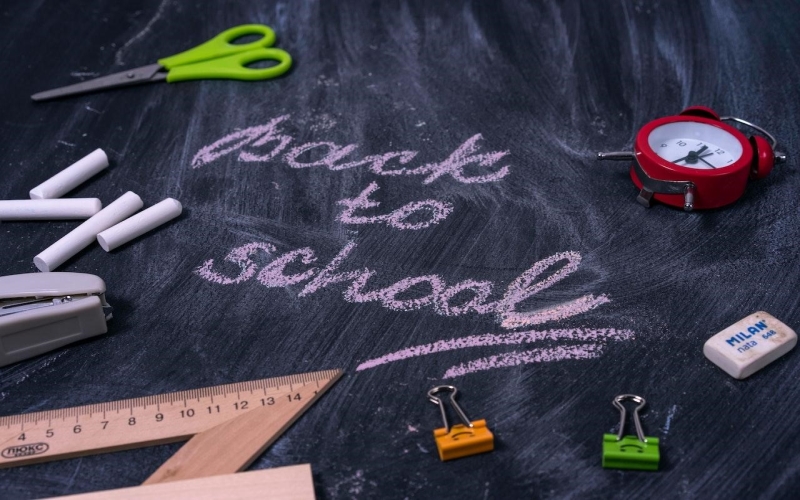ace-to-face learning with an expert teacher is considered the most effective way for learning. As your child interacts with other students their age and develops their social, emotional, and mental skills, it makes a more conducive environment for learning.
However, having to face their teachers and classmates for the very first time may seem like a daunting task for your child. Overwhelmed with concerns regarding the prospect of fitting in, meeting strangers, and shyness can make a child anxious about going to school.
Add in the health concerns that the pandemic poses, it can be more stressful for them. As their parent or guardian, it is your responsibility to help them feel safer and prepared to face these in-person classes.
5 Parental Tips
An average daycare in Newmarket will not allow parents to accompany their children inside the classroom. As independence and hands-on learning are among the basic tenets of traditional school education, you have to ensure that your child can cope with the anxiety of face-to-face classes by following these parental tips:
1. Empathy and Expectations
Teaching your children to avoid situations that make them feel anxious may sound like a good idea at first. However, telling them to do so would only lessen the stress they experience without giving them the coping mechanisms to deal with situations that they will inevitably experience.
Avoidance will only lead to increased anxiety, as it promotes the aversion to fear, rather than facing them. These stressful situations usually include taking hard exams, attending intimidating classes, or socializing with new classmates.
Instead of teaching your child that it’s okay to avoid these situations, it would be better if you tell them to face it head-on. However, you also can’t simply say to your child that they should and must cope with these anxieties right away.
It’s better if you provide a voice of support for them by validating their feelings and emotions. Acknowledge the fact that it can be difficult to face these anxieties and that it’s okay that they’re feeling this way.
However, you should also teach them that what’s not okay is letting these fears control their life. Balance out your empathy for them with firm expectations, so they can proactively cope with these stressful emotions.
Learn to communicate daily (before and after school) to assure your child that you are there to support them always. If you’re unsure of how to go about this, you may consult with therapists from Windsor, or with school counsellors.
2. Effective Coping Mechanism
Children learn best from their role models, which are their parents. You have to show them how to cope with anxieties by actively communicating with each other about the things that bother each side.
Teach your children to tolerate uncertainty, accept the unknown, and practice self-care habits. You can also conduct talks that paint possible stressful scenarios and tell them the proper way to react. Always remember that proper handling of stress can also be good for your child’s growth, so make sure to help them cope with it.
3. Teach Health Safety Habits
COVID-19 health risks are among the factors that concern both parents and children when they think of face-to-face classes. With the virus still present and unpredictable, this rational fear can eat away at your child’s desire to socialize and bond with their classmates.
To help them deal with this better, you should teach them safety protocols and habits, so they can still safely interact with friends. If you’re unsure about allowing your child to take a bus service in Toronto for safety reasons, you can always bring and fetch them personally.
4. Practice Responding to Stressful Scenarios
Coping with stressful scenarios is best practiced when it’s actually experienced by your child. However, you don’t have to push them off the deep end right away by leaving them completely alone in their first few weeks at school.
You can gradually aid them to gain more independence and confidence by setting up meetings with teachers, separating them at the school entrance, and more.
5. Create a Regular School Routine
A regular school routine provides stability to your child’s everyday life. Having a routine mapped out for every day will allow your child to better cope with the stress of school. This will help them practice daily habits and prepare on their own.
A school routine should be efficient, relaxed, and predictable, just like having the same wake-up alarm and order of things.
School anxiety is a common experience for children attending in-person classes for the first time. With the threat of the COVID-19 pandemic not yet resolved, some health safety protocols in schools are in place.
In the age of the Internet, learning can be done in varied formats and mediums. However, if you want your child to develop socially and emotionally, then they should learn to interact with others. Teach them how to deal with school anxiety better to help them on their learning journey.

